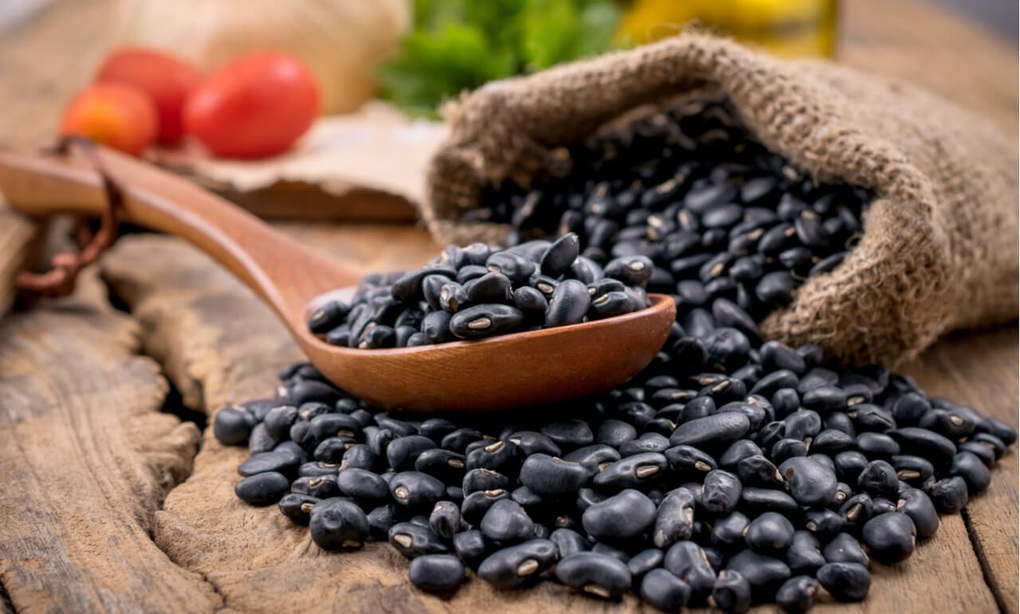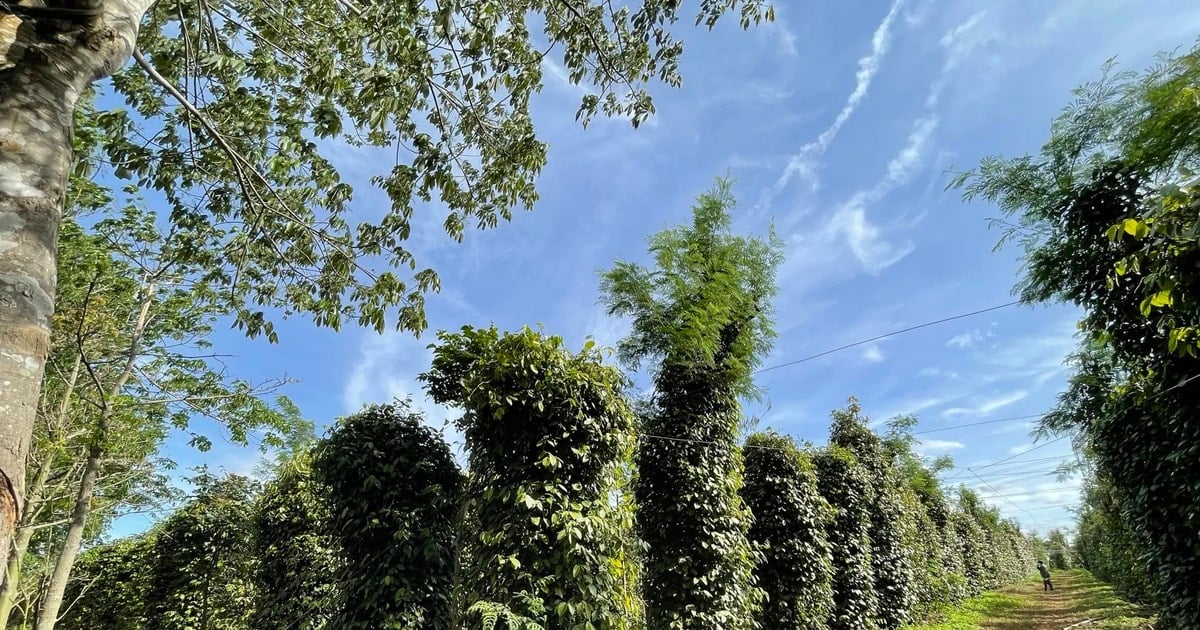Black beans, a member of the legume family, along with other beans such as peas and lentils, are a staple food in many cultures. Despite their name, black beans are actually dark purple in color.
"Like most beans, black beans are versatile and inexpensive," says nutritionist Natalie Romito. "They can be used in a variety of dishes, and are delicious hot or cold. They also have a number of health benefits."
"Black beans are high in both soluble and insoluble fiber. They're a great source of plant-based protein, providing 15 grams of protein per cooked cup, along with many other essential nutrients," says Romito.
According to Verywell Health , a cup of cooked black beans also provides 256mcg of folate or vitamin B9, 360mcg of copper, 800mcg of manganese, 400mcg of thiamine or vitamin B1… In addition, it also provides magnesium, iron, phosphorus, zinc.

Black beans have many impressive health benefits (Photo illustration: Shutterstock).
4 benefits of black beans
“We sometimes overlook beans when talking about superfoods. But black beans have remarkable disease-fighting powers,” says Romito.
Reduce the risk of disease
Black beans are rich in antioxidants, which help fight damage caused by free radicals. Too many free radicals in the body can cause cells to age faster and contribute to many serious diseases.
Black beans are rich in antioxidants, including anthocyanins and quercetin. Getting enough antioxidants in your diet helps keep your organs healthy and functioning properly.
Eating foods rich in antioxidants such as black beans helps reduce the risk of atherosclerosis, cancer, coronary artery disease, heart failure, and vision loss.
Helps fight cancer
“Black beans are packed with nutrients, such as vitamins, minerals, and phytochemicals. They work together to support inflammation, detoxification, and cellular health. All of these help reduce your risk of cancer,” Romito says.
Some of the cancer-fighting nutrients in black beans include:
- Antioxidants protect cells from damage that can lead to tumor formation.
- Fiber from plant-based foods such as black beans is associated with a reduced risk of digestive tract cancers.
- Folate helps prevent DNA mutations that lead to cancer cell formation.
- Selenium plays an important role in cancer prevention. It is important in helping your body detoxify - remove toxins, including cancer-causing chemicals.
Benefits for digestive health
“Black beans are a nutritional goldmine for the gut. There aren't many single foods that have as many digestive benefits as black beans,” notes Romito.
Black beans support the gut by providing:
- Antibacterial molecules: Laboratory studies show that certain molecules in black beans can help kill parasites and harmful bacteria in the digestive tract.
- Fiber: Black beans provide both soluble and insoluble fiber, which helps your body eliminate waste and feeds beneficial bacteria in your gut microbiome.
- Cancer protection: Research shows that beans can reduce chemical markers of colon cancer.
- Resistant starch: This type of starch, which your body doesn't break down, is a prebiotic. It acts as food for beneficial bacteria in your gut, helping to boost your gut microbiome.
Improve heart health
Black beans are a great addition to a heart-healthy diet. Nutrients in black beans that help reduce the risk of heart disease include:
- Antioxidants reduce inflammation in blood vessels. Inflammation of blood vessels can lead to atherosclerosis (hardening of the arteries), stroke, and other cardiovascular diseases.
- Flavonoids help maintain healthy cholesterol levels. High cholesterol is one of the leading risk factors for heart disease.
- Nutrients like folate, magnesium and potassium help lower blood pressure and regulate heart rate.
According to some studies, fiber helps reduce the risk of cardiovascular disease.
Side effects of black beans
Like any bean, black beans can cause some uncomfortable gas and bloating.
"You may avoid beans because of their gas-causing effects," says Romito. "However, many people can tolerate beans well if they start small. You may only need a few beans at first. But if you eat them regularly over time, your digestive system will tolerate them better."
Source: https://dantri.com.vn/suc-khoe/4-loi-ich-suc-khoe-an-tuong-cua-do-den-20250812111305696.htm



![[Photo] General Secretary To Lam attends the 80th Anniversary of the Cultural Sector's Traditional Day](https://vstatic.vietnam.vn/vietnam/resource/IMAGE/2025/8/23/7a88e6b58502490aa153adf8f0eec2b2)



![[Photo] Prime Minister Pham Minh Chinh chairs the meeting of the Government Party Committee Standing Committee](https://vstatic.vietnam.vn/vietnam/resource/IMAGE/2025/8/23/8e94aa3d26424d1ab1528c3e4bbacc45)























































































Comment (0)